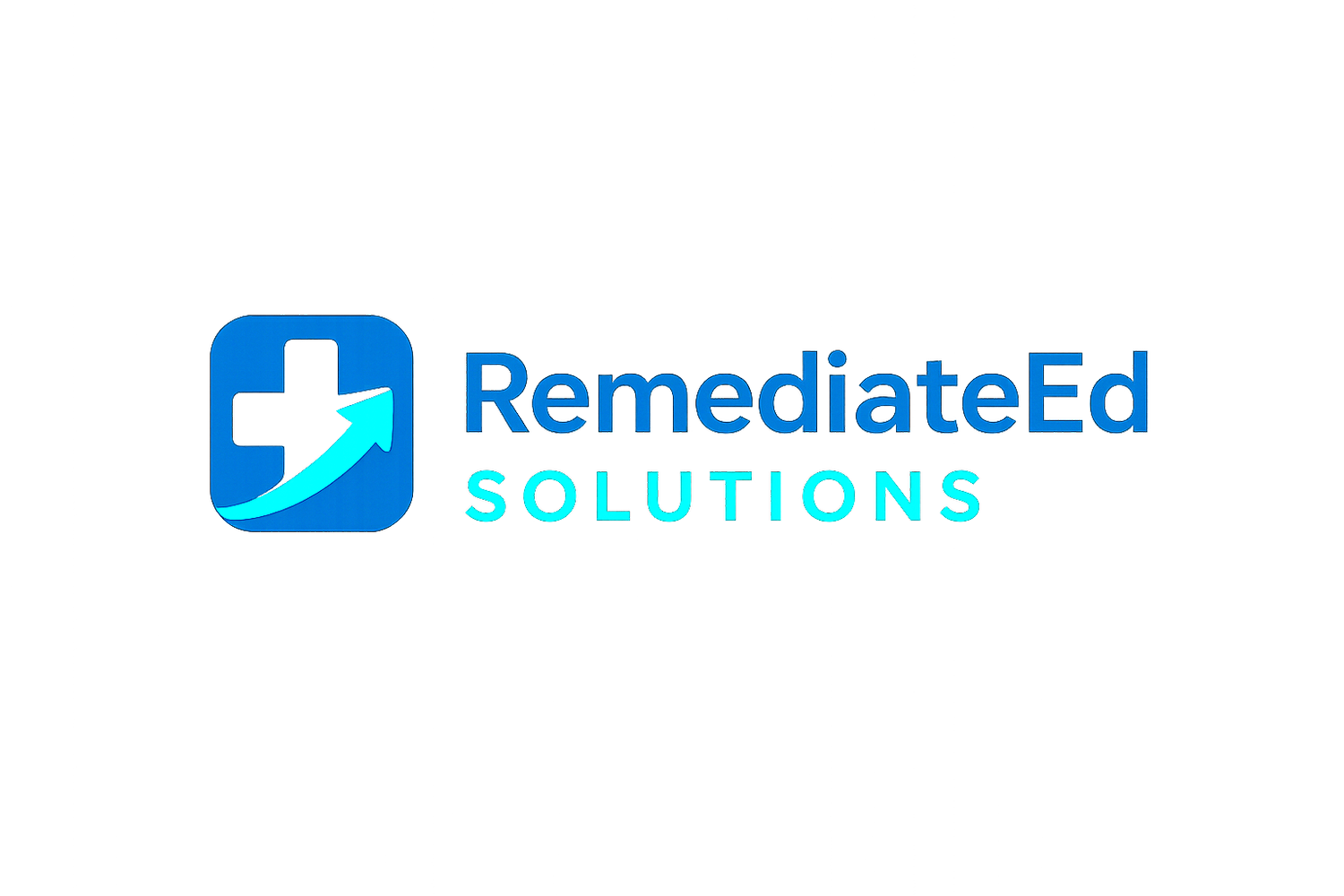Tutoring vs. Remediation: Why Professional Remediation Matters in PA Education
In Physician Assistant (PA) education, students face intense academic and clinical demands. From mastering pathophysiology to navigating complex patient cases during rotations, every student encounters challenges. When struggles arise, programs and students often ask: Should we rely on tutoring, or is professional remediation a better solution?
At RemediateEd Solutions, we help PA programs and students understand the critical differences — and why structured remediation can transform a temporary setback into long-term clinical success.
Tutoring: A Helpful Band-Aid
Tutoring is a widely used academic support method. It usually involves:
One-on-one sessions focused on specific content areas
Review of concepts, terminology, or practice questions
Short-term interventions for exam preparation or weak topics
While tutoring can help with immediate knowledge gaps, it is often reactive and narrow in scope. A tutor might help a student “catch up” on pharmacology concepts or practice test questions, but this support usually:
Does not address underlying learning strategies or knowledge retention
Is often unstructured and lacks alignment with program curriculum
May not track progress systematically or ensure mastery of competencies
In short, tutoring is a supplementary resource, not a comprehensive solution.
Remediation: Structured, Evidence-Based, and Student-Centered
Professional remediation goes beyond content review. It is a targeted, strategic process designed to help students master material, develop effective learning strategies, and regain confidence in a structured manner.
Key features include:
Individualized Learning Plans
Each student receives a plan based on diagnostic assessment, performance gaps, and learning style. Remediation isn’t “one size fits all.”Curriculum Alignment
Professional remediation integrates directly with your program’s didactic and clinical objectives, ensuring students master the competencies required for rotations and exams.Evidence-Based Strategies
Remediation incorporates proven techniques such as formative assessments, error logs, case-based learning, and reflective exercises — tools that improve both knowledge retention and clinical reasoning.Faculty Guidance and Mentorship
Professional remediation provides structured feedback loops between students and educators, fostering accountability, confidence, and growth mindset.Outcomes Tracking
Programs can measure success quantitatively (exam pass rates, EOR improvements) and qualitatively (student confidence, engagement, and professional development).
Why Remediation Outperforms Tutoring
Professional remediation significantly outperforms tutoring because it is:
Comprehensive: While tutoring offers limited content review, professional remediation provides comprehensive, curriculum-based support.
Structured and Individualized: Tutoring is often ad hoc, but remediation is individualized, structured, and goal-oriented.
Fully Integrated: Remediation is fully aligned with program objectives and includes faculty oversight, whereas tutoring has minimal faculty integration.
Skill-Focused: It goes beyond knowledge-focused review to include development of critical skills such as metacognition, test-taking strategies, and clinical reasoning.
Data-Driven: Unlike tutoring, which rarely tracks progress, professional remediation is systematic, data-driven, and focused on outcomes.
This structured approach builds confidence, reinforces competencies, and ensures students are ready for clinical practice and long-term success
The Benefits of Partnering with RemediateEd Solutions
At RemediateEd Solutions, we specialize in designing custom remediation programs for PA students and programs:
Tailored individual or group plans aligned to program curricula
Faculty training and support to optimize remediation delivery
Small group workshops and case-based reviews for practical application
Data-driven tracking systems to monitor student progress and program outcomes
Our goal is to ensure remediation is a positive, growth-oriented process, transforming struggles into stepping stones for success — rather than a punitive or reactive measure.
Final Thoughts
While tutoring has its place as an academic aid, professional remediation is a structured, strategic, and evidence-based approach that truly supports student growth. PA programs that embrace professional remediation not only improve exam outcomes but also foster confidence, resilience, and readiness for clinical practice.
Remediation is more than intervention — it’s an investment in your students’ future as competent, confident, and thriving Physician Assistants.
💡 Learn more about how RemediateEd Solutions can help your program implement effective, professional remediation: https://remediateedsolutions.com/about
